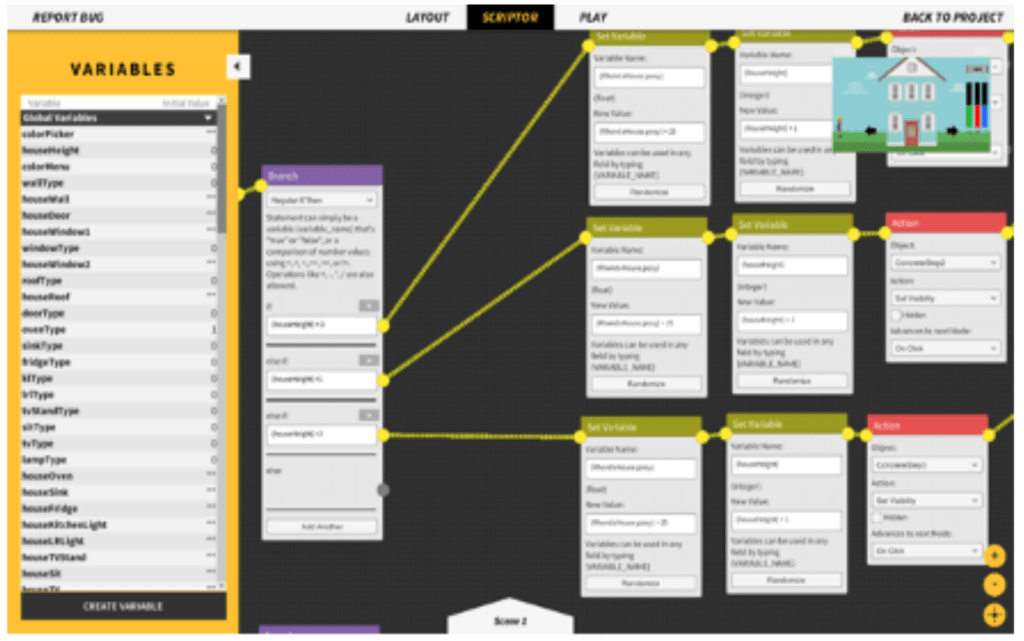StudyCrafter: An AI-Supported Platform for Engaging Learners to Conduct Research with Human Subjects
This project builds on a previous grant by exploring ways to design supports within StudyCrafter, powered by artificial intelligence, to guide undergraduate students in creating their own research studies.
This project is funded by a National Science Foundation I-USE award (2142320), and is a collaboration with Casper Harteveld, Magy Seif El-Nasr, Steven Sutherland.

Image from StudyCrafter.com
Abstract
This project aims to serve the national interest by transforming and broadly disseminating technology to support research methods education through StudyCrafter, an innovative platform that uses Artificial Intelligence (AI) to help students prepare for research involving human subjects. Its intent is to improve current undergraduate research methods education by providing an active learning environment where students can easily create scenario-based research studies and then deploy them online to collect data from participants. StudyCrafter will support students in acquiring and applying research methods skills as they build their own original research studies. Authentic human subjects research opportunities in the classroom are elusive, despite their importance for future practitioners. The project team will augment the StudyCrafter platform with AI to improve students’ computational thinking and data science skills from the initial framework of a study to the analysis of results. The project will use an iterative design approach to improve the platform while expanding its use from two to eleven universities through a coordinated network of pilot testers and early adopters.
The aim of this project is to iteratively develop a flexible and scalable educational model for undergraduate research methods education by extending StudyCrafter to include: (1) tools that can assist students in analyzing their data, (2) student-centered curricula giving instructors interactive content to teach relevant knowledge and skills, (3) AI-assisted coaching to support students with their research; and (4) automatic prompts and scaffolding methods to encourage students to critically reflect on their research. Grounded in active learning, this project will address the lack of authentic research experiences in current research methods education through an AI augmented platform, and study the affective, cognitive, and logistic outcomes for students. The NSF IUSE: EHR Program supports research and development projects to improve the effectiveness of STEM education for all students. Through the Engaged Student Learning track, the program supports the creation, exploration, and implementation of promising practices and tools.